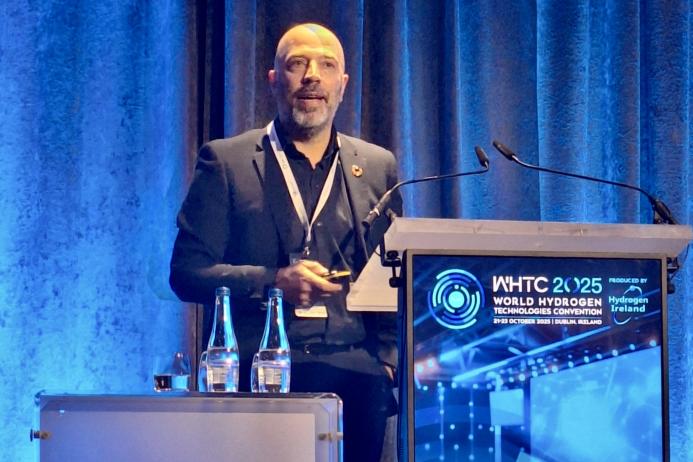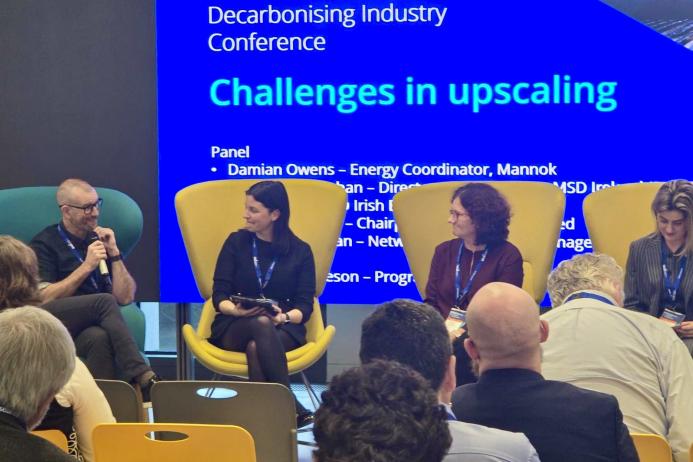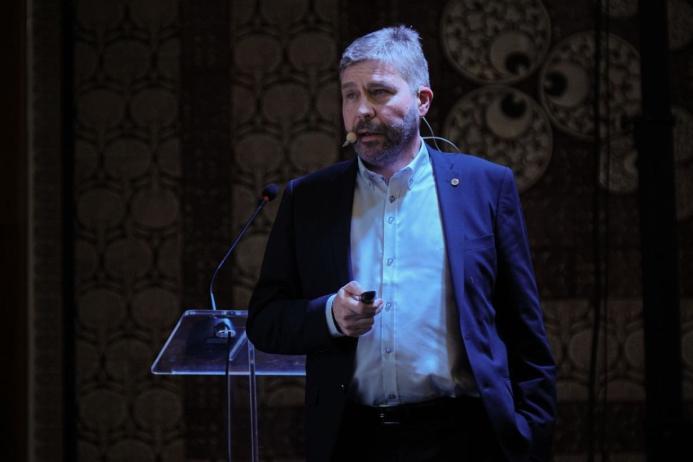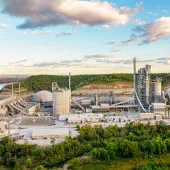Mannok demonstrate leadership in sustainability
Company showcases sustainability and innovation leadership on global and national stages
MANNOK have recently participated in a number of forums addressing key sustainability and innovation topics on both national and international stages. These thought leadership platforms position Mannok at the forefront of sustainable development as the company continues to deliver on the ambitious targets set out in its Mannok 2030 Vision sustainability strategy.
Kevin Lunney, Mannok’s director of operations, presented at the CUSCIT’25 Cement Olympics in the Gloria Golf Resort, Antalya, Turkey, where he joined international experts to share Mannok’s approach to sustainability and innovation within the cement industry.
His presentation, ‘Waste to Value: Opportunities & Challenges in Achieving RDF Solutions in Ireland’, explored waste-management strategies through the lens of the circular economy.
Mr Lunney outlined how innovation and continuous improvement at Mannok’s cement plant have significantly reduced fossil fuel use in production by replacing it with solid recovered fuels (SRF).
Key advancements included the implementation of FuelFlex, a world-first combustion system that has almost eliminated fossil fuel use in the most carbon-intensive stage of cement production – pre-calcination. This was complemented by an upgrade of the pyro kiln system, incorporating both the satellite burner and Jetflex burner, allowing SRF to be introduced as a coal replacement in the kiln for the first time.
Mr Lunney explained that through these improvements, coal consumption has been reduced by 104,000 tonnes per annum and carbon emissions by 98,000 tonnes per annum. Overall thermal total substitution rate (TSR) is now 75%.
Organized by CemenTürk magazine, CUSCIT brings together leading representatives of the cement industry, serving as a vital platform for collaboration and knowledge sharing on the future of sustainable construction.
Meanwhile, Paul Monaghan, Mannok’s head of sustainability, joined a global panel at the World Hydrogen Technologies Convention (WHTC) in Dublin to discuss the future of hydrogen energy.
WHTC is one of the world’s leading conventions in hydrogen energy and fuel-cell technology, providing a platform to share the latest scientific research and market developments.

Mr Monaghan presented Mannok’s ambitious long-term initiative – the Mannok Energy Valley Project – a 15-year, multi-phase transformation programme designed to close Mannok’s energy loop and achieve true energy independence. Each phase complements the next, contributing to a fully circular energy economy that supports Ireland’s national net-zero goals.
This event provided another valuable opportunity to connect with global experts and innovators, explore cutting-edge hydrogen technologies, and highlight how Mannok are delivering practical, sustainable energy solutions.
On a national level, Damian Owens, Mannok’s energy co-ordinator, participated in the SEAI Industry Decarbonisation Conference 2025 at Trinity College Dublin, marking 30 years of the Large Industry Energy Network (LIEN) – of which Mannok are a long-standing member.

Over the past three decades, SEAI’s LIEN has grown from an initial 41 companies to more than 200 of Ireland’s largest energy users.
Mr Owens contributed to the panel discussion on ‘Challenges in Upscaling’, sharing insights from Mannok’s decarbonization programme and their pathway toward low-carbon cement production.
The panel, moderated by Damhnait Gleeson, SEAI’s industry decarbonization programme manager, also included: Sean Finan, chief executive officer, Irish Bioenergy Association; Helen O’Sullivan, chairperson, Ireland Electrified; Berniece Hanrahan, site engineering lead, MSD Ireland; and Danijela Klopotan, network development manager, ESB Networks.
Through their active participation in global and national sustainability forums, Mannok are continuing to demonstrate leadership in decarbonization, innovation, and circular economy practices, with each engagement reinforcing the company’s commitment to delivering meaningful change within the cement and construction industries, while advancing Ireland’s broader transition to a low-carbon future. Guided by the Mannok 2030 Vision, the company says it remains focused on developing pioneering technologies and partnerships that will shape a more sustainable, energy-independent world.










